#applebaum
Text
Will Putin survive the war, or will the war survive him?
Anne Applebaum explains why Putin's days are numbered, just as Prigozhin's were. The number is larger for Putin, of course, we just don't know how much larger.
If you are a criminal, you do what worked for you in the past, and what apparently works in the present. When you are a seventy-year-old criminal, you do not have a lot of friends left, your imagination is limited, and you cannot change careers. Moreover, dictators don't retire unless their enemies throw them in prison, exile them, or execute them. They are not looking for a pension, just survival.
At some point in the future, Putin will not rule his small circle of friends any longer. We do not need to think about when at some point arrives. Neither need we dwell on the significance of his departure, since other, equally bad leaders will replace him. Corruption does not beget quality.
Prigozhin was hardly a model leader. He should have entered Moscow to see what would happen. If he believed Putin's promise not to retaliate against him, he needed someone to tell him that he may as well die at the head of his troops, rather than in a plane that drops out of the sky. We can only guess what might have happened had he led his forces all the way to the Kremlin.
We don't have to guess whether Applebaum's prediction about more difficulties to come is accurate. Dictators who launch catastrophic, unsuccessful wars generally do not recover. The only uncertainty is how they fall, and who they take with them when they do.
3 notes
·
View notes
Text
“On the eve of the invasion, some American experts advised against offering military aid to Ukraine, on the grounds that the war was going to be over too quickly. Other Americans repeated Russian propaganda, questioning whether Ukraine deserved to exist or whether it deserved to be defended. Some American politicians echoed those views and indeed continue to do so. What if they had prevailed? What if a different president had been in the White House? What if a different president had been elected in Ukraine? Let’s imagine, just for a moment, a world without Ukrainian courage, or American and European weapons, or the unity and support of democracies around the world.
Had the Russian plan been carried out as it was written, Kyiv would have been conquered in just a few days. Zelensky, his wife, and his children would have been murdered by one of the hit squads that roamed the capital city. The Ukrainian state would have been taken over by the collaborators who had already chosen their Kyiv apartments. Then, city by city, region by region, the Russian army would have fought the remnants of the Ukrainian army until it finally conquered the entire country. Originally, the Russian general staff imagined that this victory would require six weeks.
Had all of that happened as planned, Ukraine would now be pockmarked with the concentration camps, torture chambers, and makeshift prisons that have been discovered in Bucha, Izyum, Kherson, and all the other territories temporarily occupied by Russia and liberated by the Ukrainian army. A generation of Ukrainian writers, artists, politicians, journalists, and civic leaders would already be buried in mass graves. Ukrainian books would have been removed from schools and libraries. The Ukrainian language would have been suppressed in all public spaces. Hundreds of thousands more Ukrainian children would have been kidnapped and transported to Russia or trafficked farther around the world.
Russian soldiers, strengthened by their stunning victory, would already be on the borders of Poland, setting up new command posts, digging new trenches. NATO would be in chaos; the entire alliance would be forced to spend billions to prepare for the inevitable invasion of Warsaw, Vilnius, or Berlin. Millions of Ukrainian refugees would be living in camps all across Europe, with no prospect of ever returning home; the tide of sympathy that originally greeted them would have ebbed long ago; the money would be running out, the backlash under way. The Moldovan economy would have collapsed entirely; a pro-Russian government in Moldova would perhaps already be planning to incorporate that country into the emerging Russian-Belarusian-Ukrainian federation that one Russian propagandist hailed, too early, on February 26.
This disaster would not have been confined to Europe. On the other side of the world, Chinese plans to invade Taiwan would be well under way, because Beijing would assume that an America unwilling to defend a European ally, and now totally bogged down in a long-term battle against an emboldened Russia, would never go out of its way to help an island in the Pacific. The Iranian mullahs, equally cheered by Russia’s success and Ukraine’s defeat, would have boldly announced that they had finally acquired nuclear weapons. From Venezuela to Zimbabwe to Myanmar, dictatorships around the world would have tightened their regimes and stepped up the persecution of their opponents, now certain that the old rules—the conventions on human rights and genocide, the laws of war, the taboo against changing borders by force—no longer applied. From Washington to London, from Tokyo to Canberra, the democratic world would be grimly facing up to its obsolescence.
But none of this happened. Because Zelensky stayed in Kyiv, declaring that he needed “ammunition, not a ride”; because Ukrainian soldiers repulsed the first Russian attack on their capital; because Ukrainian society pulled together to support its army; because Ukrainians at all levels were creative in their use of limited resources; because Ukrainian civilians were, and are, willing to endure terrible hardship; because of all of that, we are not living in that ugly, alternate reality.
Because they were inspired by those first weeks of Ukrainian courage, President Joe Biden and the U.S. Congress resisted the temptation of “America First” isolationism and rejected the cult of autocracy that now captivates a part of the American right. The leaders of Europe—with the sole exception of the Hungarian prime minister, Viktor Orbán, one of the chief ideologues of that same cult—also resisted carefully targeted Russian disinformation and blackmail campaigns and agreed to support Ukraine with both military and humanitarian aid. People around the world saw the Ukrainians stand up to a brutal dictatorship, and volunteered their time and their money to help.
Because of everything that all of us did together, Kyiv still stands. Ukrainians still control most of Ukraine. The massacres, the executions, the mass violence planned by the Russians did not take place in most of Ukraine. The legend of Russia’s military prowess has been shattered. China and Iran are roiled by unhappiness and unrest. The democratic world did not collapse but has instead been strengthened. As the Ukrainian president said last night, we “succeeded in uniting the global community to protect freedom and international law.” Zelensky came to Washington to thank Americans on behalf of Ukraine, but in truth, it is we who should be thanking them.”
“His speech was one of gratitude but also reassurance. He insisted that Ukrainians are not asking Americans to spill their blood in defense of his country. Instead, he asked for weapons so that they can fight for themselves. It was an impressive, moving speech.
Yet even before it was over the outrage performance artists started in.
One of their biggest gripes – he wasn't wearing the right clothes.
(…)
The fact that Zelensky, maybe the most hunted man on earth, was secretly smuggled out of his war-ravaged country to personally thank and appeal to the American people apparently doesn't matter.
He really should have worn a nice jacket and tie.
(…)
The U.S. estimates that 100,000 Ukrainian soldiers and 40,000 civilians have been killed. Countless children have been slaughtered, women raped – lives and families torn to shreds will never, ever, heal.
And we're supposed to buy into the fantasy that this is all part of a plan? Zelensky is a conman and he's laughing all the way to the bank?
It's ridiculous. It's nauseating. It's an insult to common sense.
(…)
Don't we have the good sense and humility to see some inspiration in Zelensky. Or are we all that cynical? I wish I could point to a single American officeholder, who embodied that kind of spirit.
The tantrums of these so-called 'America Firsters' come across as bitterness at their own failure. The candidates who embraced these isolationist ideas were losers in the midterms.
These people are surprisingly incapable of acknowledging the truth about the world – that if Russia can take Ukraine, if China can take Taiwan, it has ramifications for America, too.
Strength prevents war. And if America projected more strength prior to Russia's invasion, maybe the world would not be in the predicament it faces today. These are the debates that we should be having.”
2 notes
·
View notes
Text




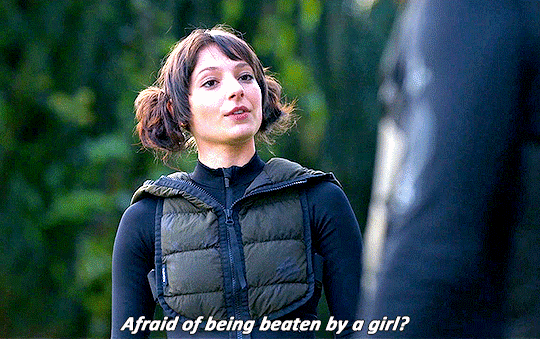
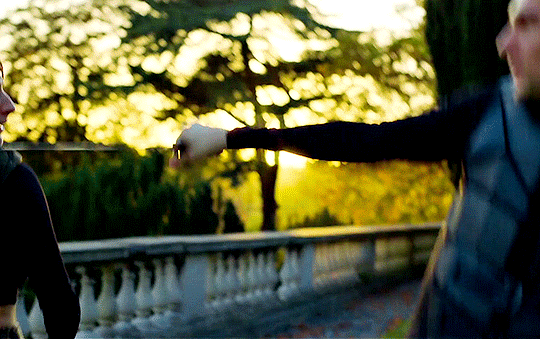
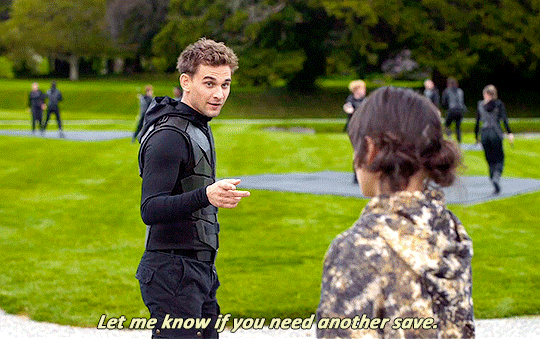

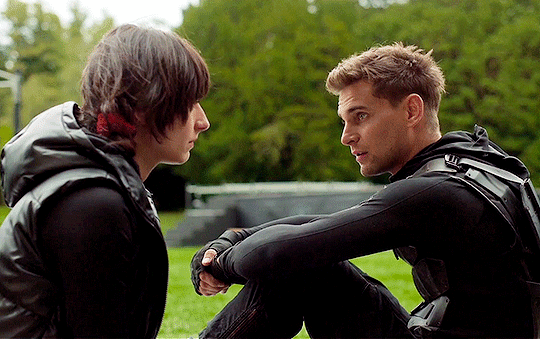

MY FAVORITE SHIPS (aka an excuse to gif my hyperfixation of the week)
1/∞: Riven and Musa from Fate: The Winx Saga
#can't believe we didn't get to see them kiss#i will never get over it!#rivusa#fate: the winx saga#rivusaedit#ftwsedit#fatethewinxsagaedit#elisha applebaum#freddie thorp#riven x Musa#jordansfavoriteshipsseries#my gifs
192 notes
·
View notes
Text
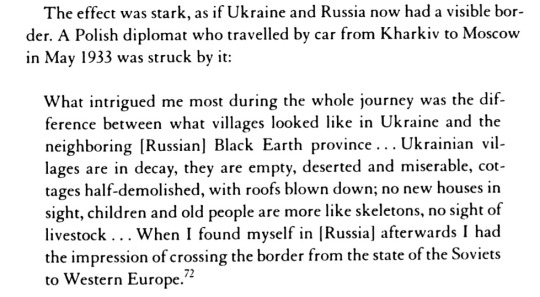
- Anne Applebaum. The Red Famine: Stalin's War on Ukraine
Gonna keep this quote for every person who says "but there was famine in russia too!!"
#ukraine#russia#ussr#history#holodomor#anne applebaum#communism#genocide#famine#ukrainian history#joseph stalin
208 notes
·
View notes
Text
In the terrible winter of 1932–33, brigades of Communist Party activists went house to house in the Ukrainian countryside, looking for food. The brigades were from Moscow, Kyiv, and Kharkiv, as well as villages down the road. They dug up gardens, broke open walls, and used long rods to poke up chimneys, searching for hidden grain. They watched for smoke coming from chimneys, because that might mean a family had hidden flour and was baking bread. They led away farm animals and confiscated tomato seedlings. After they left, Ukrainian peasants, deprived of food, ate rats, frogs, and boiled grass. They gnawed on tree bark and leather. Many resorted to cannibalism to stay alive. Some 4 million died of starvation.
At the time, the activists felt no guilt. Soviet propaganda had repeatedly told them that supposedly wealthy peasants, whom they called kulaks, were saboteurs and enemies—rich, stubborn landowners who were preventing the Soviet proletariat from achieving the utopia that its leaders had promised. The kulaks should be swept away, crushed like parasites or flies. Their food should be given to the workers in the cities, who deserved it more than they did. Years later, the Ukrainian-born Soviet defector Viktor Kravchenko wrote about what it was like to be part of one of those brigades. “To spare yourself mental agony you veil unpleasant truths from view by half-closing your eyes—and your mind,” he explained. “You make panicky excuses and shrug off knowledge with words like exaggeration and hysteria.”
He also described how political jargon and euphemisms helped camouflage the reality of what they were doing. His team spoke of the “peasant front” and the “kulak menace,” “village socialism” and “class resistance,” to avoid giving humanity to the people whose food they were stealing. Lev Kopelev, another Soviet writer who as a young man had served in an activist brigade in the countryside (later he spent years in the Gulag), had very similar reflections. He too had found that clichés and ideological language helped him hide what he was doing, even from himself:
I persuaded myself, explained to myself. I mustn’t give in to debilitating pity. We were realizing historical necessity. We were performing our revolutionary duty. We were obtaining grain for the socialist fatherland. For the five-year plan.
There was no need to feel sympathy for the peasants. They did not deserve to exist. Their rural riches would soon be the property of all.
But the kulaks were not rich; they were starving. The countryside was not wealthy; it was a wasteland. This is how Kravchenko described it in his memoirs, written many years later:
Large quantities of implements and machinery, which had once been cared for like so many jewels by their private owners, now lay scattered under the open skies, dirty, rusting and out of repair. Emaciated cows and horses, crusted with manure, wandered through the yard. Chickens, geese and ducks were digging in flocks in the unthreshed grain.
That reality, a reality he had seen with his own eyes, was strong enough to remain in his memory. But at the time he experienced it, he was able to convince himself of the opposite. Vasily Grossman, another Soviet writer, gives these words to a character in his novel Everything Flows:
I’m no longer under a spell, I can see now that the kulaks were human beings. But why was my heart so frozen at the time? When such terrible things were being done, when such suffering was going on all around me? And the truth is that I truly didn’t think of them as human beings. “They’re not human beings, they’re kulak trash”—that’s what I heard again and again, that’s what everyone kept repeating.
— Ukraine and the Words That Lead to Mass Murder
#anne applebaum#ukraine and the words that lead to mass murder#current events#history#politics#russian politics#sociology#psychology#communism#warfare#totalitarianism#propaganda#holodomor#russo-ukrainian war#2022 russian invasion of ukraine#russia#ukraine#viktor kravchenko#lev kopelev#vasily grossman#kulaks
263 notes
·
View notes
Text
SCREAMING CRYING SHAKING

841 notes
·
View notes
Photo

EXCUSE ME?
430 notes
·
View notes
Text


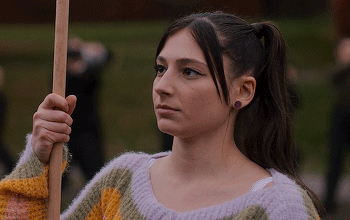
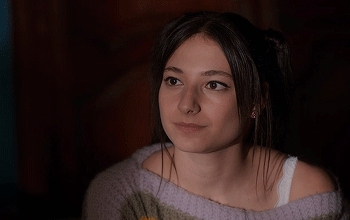




musa in every episode → 1.05/Wither Into the Truth
31 notes
·
View notes
Quote
“The emotional appeal of a conspiracy theory is in its simplicity. It explains away complex phenomena, accounts for chance and accidents, offers the believer the satisfying sense of having special, privileged access to the truth. For those who become the one-party state’s gatekeepers, the repetition of these conspiracy theories also brings another reward: power.”
― Anne Applebaum, Twilight of Democracy: The Seductive Lure of Authoritarianism.
#conspiracy#conspiracy theories#anne applebaum#democracy#logic#knowledge#rationalism#philosophy#power#extremism#freedom#responsibility#quotes#excerpts
149 notes
·
View notes
Text
Why power destroys security and freedom
There is a lesson here for Americans: We need to look hard at what happened in Israel, and start asking which security risks are posed by the scorn that American far-right politicians and propagandists now pour on the American military, the FBI, and of course the federal government as a whole. They have already weakened public trust and, if Donald Trump becomes president again, they may deliberately set out to weaken the institutions themselves: Preparation to replace civil servants has already begun. The impact of their campaign to undermine Americans’ faith in American democracy has already been felt, and its security implications are already evident. To take just one example, online disinformation campaigns of the sort the Russians ran in the 2016 election work best on polarized societies, where levels of distrust are especially high. ~ Anne Applebaum in The Atlantic
Anne Applebaum's paragraph above is the plainest statement of the case yet: that when we heap scorn on our national institutions, we weaken our country with disunity, make it less secure against our enemies, and undermine other people's faith in democracy. You can't have a strong, unified country that can protect itself if you have disloyal people within to spread the falsehood that government security institutions cannot be trusted.
Always left out of this analysis is the possibility that government institutions are not actually worthy of our trust. Is that because, given the record, Applebaum thinks that the FBI, CIA, NSA, and other security agencies do merit our confidence, our faith that they will protect us and rather than their own interests? Or is the argument that we must trust these institutions, because the consequences of not trusting them are too horrific? That is, if the wolf appears at our door, as these agencies say he did on September 11, 2001, then we must forfeit a lot of freedom to prevent him from getting inside.
Of course, if we say that is not a deal we would ever strike in a democratic country - because state security institutions are inherently untrustworthy, with a record of behavior that proves it so - then those dissenters open themselves to the accusation that they are disloyal to the government. Yet the fact that Trump and Netanyahu charge their opponents with disloyalty does not mean that people who distrust state security agencies are wrong in their skepticism. It merely means that politicians like Trump and Netanyahu say whatever is required to get power.
Trump was right to criticize the FBI during his first term. He did not, however, aim to reform the agency. He wanted to protect his own position. Similarly, the FBI and the Justice Department did not attack Trump to protect the republic. The department acted on behalf of people who hated the president, and who wanted him out of office. Neither side in this conflict cared about the integrity of our institutions, preserving democracy - whatever that means - or protecting our country's citizens and their freedoms.
That was the amazing frankness of the Trump presidency's political combat: no one who participated pretended to care about anything but winning. Ideals such as democracy, freedom, and security had no bearing on the methods the combatants used, or on their reasons for acting. They utterly ignored the fact that when you fight for power, that is all you get when you win: power. You have no capacity at that point to use your power for other good ends.
0 notes
Text
“Over the past six days, Ukraine’s armed forces have broken through the Russian lines in the northeastern corner of the country, swept eastward, and liberated town after town in what had been occupied territory. First Balakliya, then Kupyansk, then Izium, a city that sits on major supply routes. These names won’t mean much to a foreign audience, but they are places that have been beyond reach, impossible for Ukrainians to contact for months. Now they have fallen in hours. As I write this, Ukrainian forces are said to be fighting on the outskirts of Donetsk, a city that Russia has occupied since 2014.
(…)
Russian troops are not fighting back. More than that: Offered the choice of fighting or fleeing, many of them appear to be escaping as fast as they can. For several days, soldiers and others have posted photographs of hastily abandoned military vehicles and equipment, as well as videos showing lines of cars, presumably belonging to collaborators, fleeing the occupied territories. A Ukrainian General Staff report said that Russian soldiers were ditching their uniforms, donning civilian clothes, and trying to slip back into Russian territory. The Ukrainian security service has set up a hotline that Russian soldiers can call if they want to surrender, and it has also posted recordings of some of the calls. The fundamental difference between Ukrainian soldiers, who are fighting for their country’s existence, and Russian soldiers, who are fighting for their salary, has finally begun to matter.
(…)
Back in March, I wrote that it was time to imagine the possibility of victory, and I defined victory quite narrowly: “It means that Ukraine remains a sovereign democracy, with the right to choose its own leaders and make its own treaties.” Six months later, some adjustments to that basic definition are required. In Kyiv yesterday, I watched Ukrainian Defense Minister Oleksii Reznikov tell an audience that victory should now include not only a return to the borders of Ukraine as they were in 1991—including Crimea, as well as Donbas in eastern Ukraine—but also reparations to pay for the damage and war-crimes tribunals to give victims some sense of justice.
(…)
That original mission has already failed. There will be no such “new era.” The Soviet Union will not be revived. And when Russian elites finally realize that Putin’s imperial project was not just a failure for Putin personally but also a moral, political, and economic disaster for the entire country, themselves included, then his claim to be the legitimate ruler of Russia melts away. When I write that Americans and Europeans need to prepare for a Ukrainian victory, this is what I mean: We must expect that a Ukrainian victory, and certainly a victory in Ukraine’s understanding of the term, also brings about the end of Putin’s regime.
To be clear: This is not a prediction; it’s a warning. Many things about the current Russian political system are strange, and one of the strangest is the total absence of a mechanism for succession. Not only do we have no idea who would or could replace Putin; we have no idea who would or could choose that person. In the Soviet Union there was a Politburo, a group of people that could theoretically make such a decision, and very occasionally did. By contrast, there is no transition mechanism in Russia. There is no dauphin. Putin has refused even to allow Russians to contemplate an alternative to his seedy and corrupt brand of kleptocratic power. Nevertheless, I repeat: It is inconceivable that he can continue to rule if the centerpiece of his claim to legitimacy—his promise to put the Soviet Union back together again—proves not just impossible but laughable.
(…)
The possibility of instability in Russia, a nuclear power, terrifies many. But it may now be unavoidable. And if that’s what is coming, we should anticipate it, plan for it, think about the possibilities as well as the dangers. “We have learned not to be scared,” Reznikov told his Kyiv audience on Saturday. “Now we ask the rest of you not to be scared too.””
“The sudden advance made by Ukraine’s forces into Russian-occupied territory is not only a brilliant tactical move; it could prove a decisive turning point in the war.
The seizure by Ukrainian forces of two key towns – Izyum and Kupiansk – means that an area the size of Lancashire has been liberated from the Russian invader. And Kyiv’s forces are still pushing on.
The last time Russian forces had to retreat so close to Moscow was 1941 – when they were being pushed back by the German onslaught.
(…)
In his great novel War and Peace, Leo Tolstoy outlined how battles are often won for no other reason than that one side wants victory more than the other.
Ukrainians have shown they are willing to die to keep their country free. But few Russian soldiers see any glory in throwing away their lives for Putin’s arrogant misadventures.
During the ‘Great Patriotic War’ – Russia’s term for its heroic repulse of Hitler during the Second World War – millions of Russian conscripts were mown down on the steppes by German machine-gunners, tanks and artillery.
In contrast, Putin has been able to mobilise only about 750,000 troops. Of these, thanks to leaks from the Russian finance ministry, we know that ‘death grants’ have been paid to the families of 48,000 soldiers.
This represents the biggest Russian loss of life since 1945, and includes some of their best-trained and equipped forces. By some counts, Russia has lost 14 generals – a scale of losses unpre-cedented for almost 80 years.
(…)
When the invasion was launched, thousands of Russian riot police were mobilised to sign up to fight, believing that Kyiv would fall within days and the ‘special military operation’ would become a police matter.
How wrong they were. The Ukrainian resistance picked off many of these units – which means they are no longer available to stamp out any upcoming protests on Russia’s streets.
Putin also bet that sky-rocketing energy prices would split the West, eroding Nato’s unity as public opinion in Europe especially turned against aiding Ukraine. But he is losing the war too fast, and rising fuel prices are not undercutting western solidarity with Ukraine in the way he imagined.
Unless Moscow now sees a dramatic change of fortune, it is not hard to imagine Putin’s generals and spy chiefs deciding to make him the scapegoat for the war – and withdraw the bedraggled remaining troops.
He will never retire – or be retired. An ousted Putin would more likely suffer a nasty ‘fall’ or sudden fatal ‘illness’ – like so many of his own critics during the ugly years of his presidency.
And that, conversely, is why we may be approaching the most dangerous moment in the war. Schooled in Russia’s history and the ignominious end of so many of its leaders, Putin might be willing to do anything to prevent his assassination – even going nuclear to save his own skin.
(…)
Could the US possibly stand aside? Wouldn’t President Joe Biden instead have to threaten American intervention to try to stop further use of nukes? Would China stand by its Russian ally?”

“Economically, the nation’s parlous fiscal and monetary situation is leading the country in the direction of high inflation if not hyperinflation. Diplomatically, the approach of winter and the shifting sands of European and American politics pose a threat to Western unity that the Russian president, Vladimir Putin, is hoping will give him leverage. Without an immediate increase in Western support, Ukraine will struggle to sustain its success on the battlefield.
The good news from the eastern front was conspicuous by its absence from the speech delivered by Zelenskiy at YES on Friday. A “winter of discontent” lay ahead not only for Ukraine but for all of Europe, he warned; the next 90 days of the war with Russia would be decisive.
(…)
In a realist perspective, Russia would seem bound to prevail over Ukraine sooner or later. Its territory is 28 times larger; its GDP is nine times larger; its population is 3.3 times larger. Western sanctions do not alter the fact that Russia still has significant (if reduced) revenue from exporting its gas and oil, whereas Ukraine is heavily dependent on Western economic and military assistance. Time might seem to be more on Russia’s side than Ukraine’s.
(…)
The invader is at an inherent disadvantage in the face of a strong nationalist sentiment. Putin has inadvertently turned the formerly divided and disgruntled inhabitants of Ukraine into the Ukrainian people. And wars of national liberation against declining empires are more often successful than not. That is why there aren’t many empires left.
(…)
Right now, Ukraine is not only fighting for its freedom; it’s a proxy for a US-led effort to weaken Russia (and perhaps also to deter China from similar aggression). The Ukrainian war effort is sustainable only thanks to large-scale military and financial aid from the US and its Anglosphere and European allies. At the same time, US-instigated sanctions (especially technology export controls) are driving the Russian economy and military back into the late 20th century.
(…)
If the US further increased its supply of precision weaponry to Ukraine and added tanks to the mix, the Russian positions in Kherson, Luhansk and Donetsk could probably be made unsustainable. Similarly, if the EU further increased its economic support for Ukraine, the risk of an inflationary crisis would recede.
There is a scenario — I would give it a 20% probability — that the Russian position in Ukraine now unravels. This is a largely colonial army, its best battalions severely depleted by six months of highly destructive warfare, its ranks replenished by raw recruits from impoverished provinces east of the Urals. Its morale is low. Such armies can be brought to a tipping point if they encounter well-armed, well-organized and well-motivated opponents. Defeat in land war is much less about killing enemy soldiers than getting them to surrender, flee or desert.
(…)
The war in Ukraine has now entered its seventh month. Most wars are shorter. Of 88 wars between states since 1816, nearly a quarter lasted less than two months and 38% between two and six months. Of the remaining 35, 12 were over within a further six months, seven lasted up to two years, 12 two to five years, and four more than five years.
In other words, a war that continues for six months has a roughly one-in-three chance of lasting no longer than a year in total, but an equal chance of lasting between two and five years. We should not forget the Korean War, the first “hot” war of Cold War I, which lasted three years and did not end with a conclusive peace agreement — merely an armistice.
The Ukrainian army may be winning. The Ukrainian economy is losing. As is typical in a war of this sort, the invaded country suffers a severe decline in output simply because productive land and assets are taken over by the enemy or destroyed. At the same time, one-third of Ukrainians have been displaced by the war; over 6.8 million have left the country and the rest are internally displaced. A large proportion have lost their jobs and homes.
Ukraine’s GDP shrank by 15.1% year-on-year in the first quarter of 2022. In the second, it shrank by 37%. The overall annual contraction of output will be around 33%, according to government estimates. Unemployment is at Great Depression levels.
The total damage caused by the war to Ukrainian infrastructure and housing was estimated last week in a World Bank report at $97.4 billion. The same report estimates total losses from the shuttering of business at $252 billion.
(…)
Although the Ukrainian government has an ambitious plan for the reconstruction of the country (price tag: $750 billion), it needs much more modest sums right now simply to stay afloat. As Shmyhal put it, “Infrastructure needs to be rebuilt before the winter in order for people to survive — I mean this literally.”
In the familiar pattern of an economy at war, public spending has soared while tax and other revenues have collapsed. Tax revenue in Ukraine now covers just 40% of government spending. The Finance Ministry says it requires approximately $5 billion (2.5% of pre-war GDP) in foreign aid per month to cover nonmilitary spending. To date, however, Ukraine has received $17.5 billion in aid, roughly half of the amount pledged by international partners — and far short of the government’s needs.
The Europeans are the main culprits. The EU promised Ukraine 9 billion euros in budgetary support in May, but only about 1 billion has been disbursed. The National Bank of Ukraine has had to buy roughly $8.2 billion in war bonds as the government dares not try to sell new debt on the international market so soon after “reprofiling” (i.e. delaying payments for two years) its existing external debt. Inflation, which began the year at 10%, is now at 24% and rising. The central bank has raised interest rates to 25% but it has also been obliged to devalue the hryvnia by 25% against the dollar.
A recent paper published by the Centre for Economic Policy Research urges the government to raise tax revenue and to sell domestic debt rather than monetize it through the central bank. I heard nothing in Kyiv to suggest this advice is going to be heeded. In the words of the Swedish economist Anders Aslund, “The greatest immediate risk to the Ukrainian economy is that the EU does not deliver sufficient budget support soon enough.” In that case, he added, the Ukrainian government “will be forced to print money so that the current high inflation … proceeds to hyperinflation.”
(…)
Russia’s invasion force at the outset of the conflict numbered between 175,000 and 190,000, plus around 34,000 in separatist militias from the self-proclaimed Luhansk and Donetsk People’s Republics. Estimates of Russian casualties —killed and wounded — range widely. In August, the US and UK both put total Russian casualties at around 80,000. From this, Western analysts infer total deaths of 20,000 to 25,000. These figures include non-regular forces, such as the Donbas militias and mercenaries from the Wagner Group. The Russian casualty figures released by Ukraine are even higher. As of Sept. 1, Ukraine’s army reported killing over 48,000 Russian troops.
Western estimates imply a mortality rate of at least 9% to 12%. If Ukrainian claims are right, the figure is much higher: 25%-28%. These rates are staggeringly high by the standards of 20th- and 21st-century conflict. For example, US battle deaths in the Korean War amounted to 1.88% of the total force deployed there.
We know much less about Ukrainian military mortality. We should probably therefore assume that Ukrainian losses are on a similar scale to Russia’s.
Compare all these estimates to the death toll with the nine-year US war in Iraq, which saw 3,500 US soldiers killed in action and 32,000 wounded, or the US campaign in Afghanistan between 2001 and 2021, which cost the lives of over 2,000 American service personnel and left more than 20,000 wounded. In both cases, the fractions killed in action of total forces deployed were miniscule by the standards of today’s war in Ukraine.
Over 10 years, beginning at the end of 1979, the Soviet war in Afghanistan saw 15,000 Soviet soldiers killed and over 50,000 wounded. Russia may have suffered comparable casualties in just the first 10 weeks of this war.
(…)
Both sides urgently need to raise, arm and train additional forces. On Aug. 25, Putin ordered a 137,000-person increase in military personnel, raising the target number of active-duty service members to 1.15 million by January. Russia has also established new, highly paid “volunteer” battalions (400 men from each of Russia’s 85 regions). However, many of these new battalions and other units are undermanned. The Third Army Corps, now being sent to Ukraine, is one-third of its planned size. For reasons of domestic politics, Putin appears unwilling to risk proclaiming that this is a real war that necessitates general mobilization.
By contrast, Ukraine declared a general mobilization on Feb. 24 and currently has 700,000 troops across the military, national guard and territorial forces. Ukraine is no longer prioritizing fresh manpower, with Defense Minister Oleksii Reznikov stating that the priority is now technical specialists rather than general recruits.
(…)
Meanwhile, Ukrainian morale could scarcely be higher. An August opinion survey found that 98% of Ukrainians believe their country will win the war. They are less willing today to give up on the idea of North Atlantic Treaty Organization membership than they were in April. Around 90% of Ukrainians either “strongly approve” or “somewhat approve” of Zelenskiy; 88% “strongly approve” of Ukraine’s military. Instead of weighing concessions, Ukraine’s leaders are openly discussing the liberation of Crimea to restore the pre-2014 borders, something 64% of Ukrainians believe is achievable by the end of the war.
(…)
Zelenskiy is right: The next three months will be crucial — though we should look even further ahead, beyond mid-December into January and February, usually the coldest months of the year in Ukraine. With the right military and financial assistance, Ukraine could celebrate the first anniversary of this war by driving Russia further back, if not all the way to the status quo ante of February 23, 2022. Without it, a winter of discontent will inevitably blow some of the stardust off the former entertainer turned war leader — and confront the Ukrainian people with the harsh reality that few struggles for national liberation have ever been won inside 12 months.
Between Lexington and Yorktown lay six long years.”
2 notes
·
View notes
Text
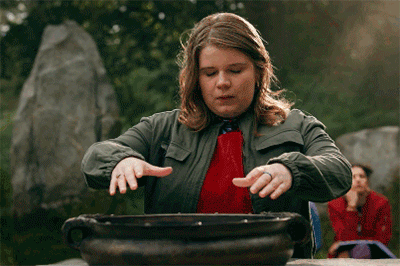
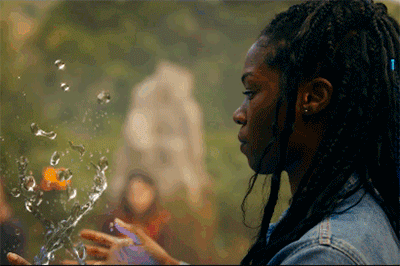


𝐅𝐚𝐭𝐞: 𝐓𝐡𝐞 𝐖𝐢𝐧𝐱 𝐒𝐚𝐠𝐚 (𝟐𝟎𝟐𝟏)
#Fate: The Winx Saga#Winx#Terra#Aisha#Musa#Beatrix#earth#water#mind#air#magic#Precious Mustapha#Eliot Salt#Elisha Applebaum#Sadie Soverall#teen drama#television series#Winx Club#fantasy
35 notes
·
View notes
Text

- Anne Applebaum. The Red Famine: Stalin's War on Ukraine
#ukraine#russia#ussr#history#holodomor#anne applebaum#communism#famine#artificial famine#ukrainian history#joseph stalin
91 notes
·
View notes
Text
And this was his answer: Help us fight them here, help us defeat them here, and you won’t have to fight them anywhere else. Help us preserve some kind of open, normal society, using our soldiers and not your soldiers. That will help you preserve your open, normal society, and that of others too. Help Ukraine fight Russia now so that no one else has to fight Russia later, and so that harder and more painful choices don’t have to be made down the line.
— Zelensky Has an Answer for DeSantis
#anne applebaum#volodomyr zelenskyy#current events#warfare#politics#russian politics#ukrainian politics#international relations#russo-ukrainian war#2022 russian invasion of ukraine#russia#ukraine#ron desantis
83 notes
·
View notes
Text

soo i made riven’s insta 🥹✨
just the thought of him calling her pixie in the show has me rolling on the floor 😭😭
#rivusa#fate the winx saga#musa#riven#winx netflix#elisha applebaum#freddie thorp#musa x riven#my edit
288 notes
·
View notes
Photo

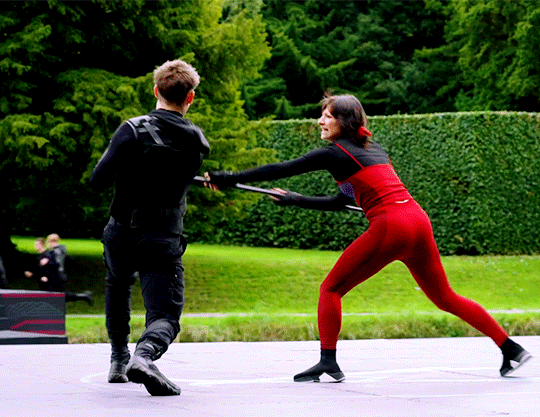
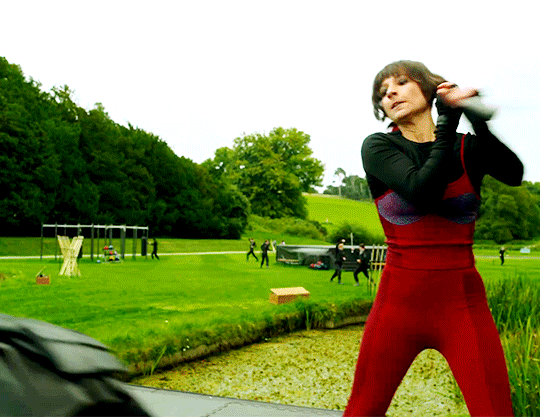
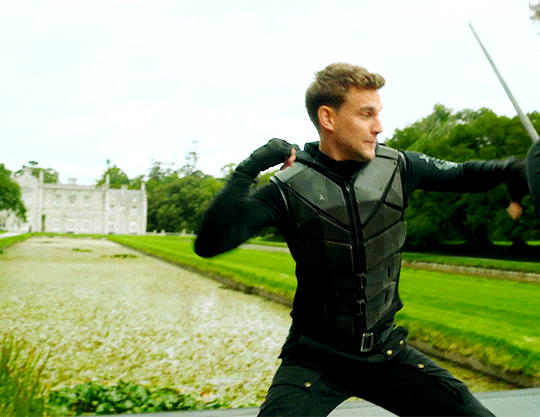
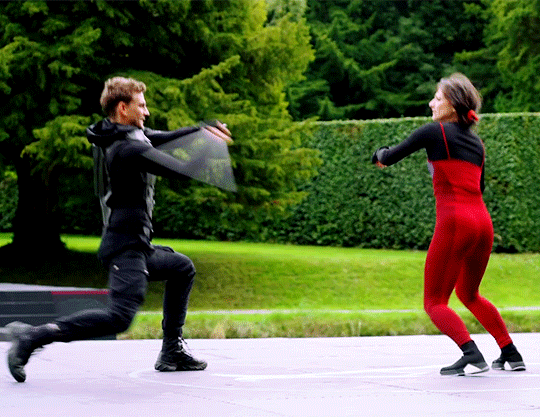
FREDDIE THORP and ELISHA APPLEBAUM in FATE : THE WINX SAGA SEASON 2
#fate the winx saga#fate the winx club#elisha applebaum#freddie thorp#riven#musa#rivusa#musa x riven#riven x musa#winxedits#OH MY GOD!#AAAAH#I'M BACK FROM THE DEAD
572 notes
·
View notes